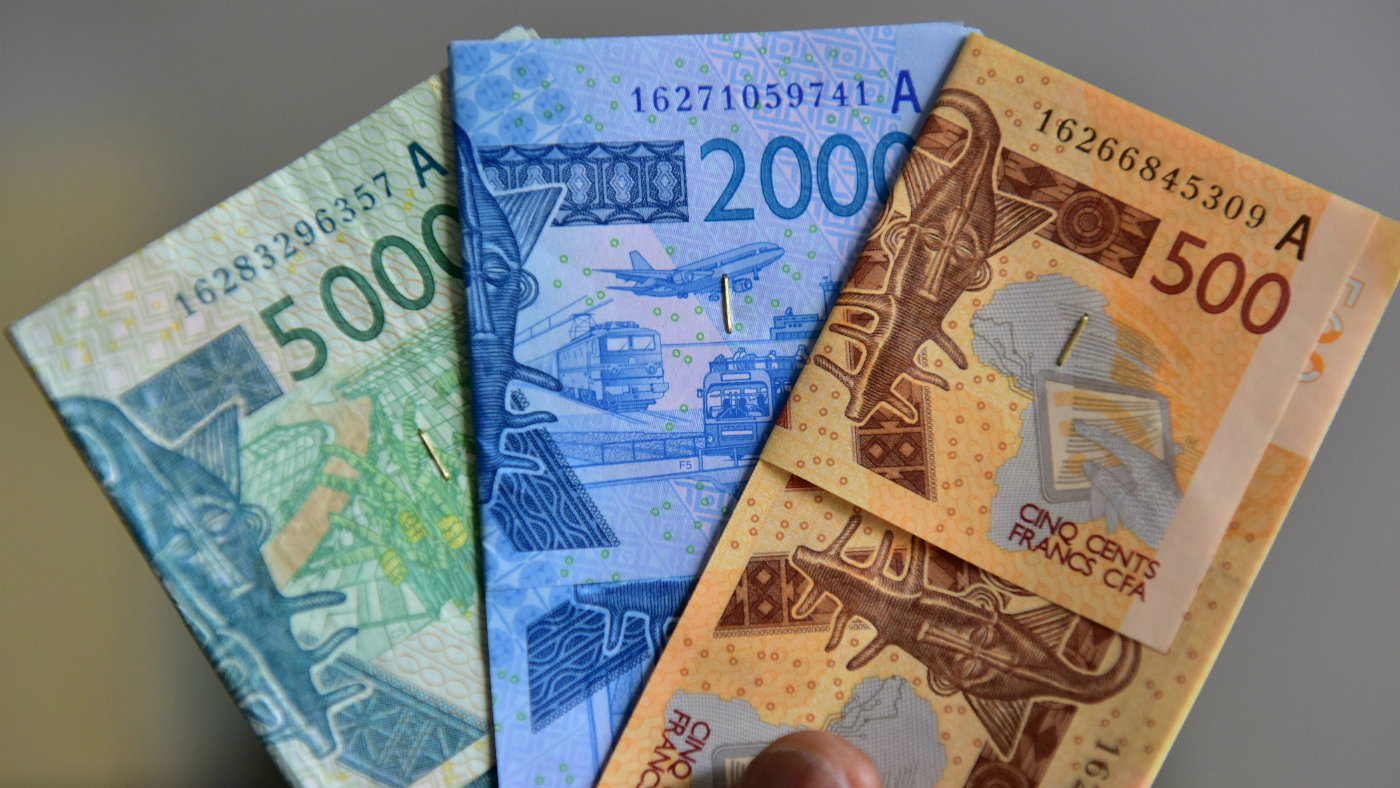‘Colonial relic’: why eight African countries have severed currency ties with France
Former French colonies to replace the CFA franc with the eco

A free daily email with the biggest news stories of the day – and the best features from TheWeek.com
You are now subscribed
Your newsletter sign-up was successful
Eight West African countries have announced that they will rename their common currency and sever financial links with their former colonial ruler France.
Since the end of the Second World War, Benin, Burkina Faso, Guinea-Bissau, Ivory Coast, Mali, Niger, Senegal and Togo - known collectively as the Economic Community of West African States (ECOWAS) - have all used the CFA franc as their currency.
For four decades, the CFA franc – named originally as the franc of the French Colonies in Africa – was pegged to the French franc, before being linked to the euro.
The Week
Escape your echo chamber. Get the facts behind the news, plus analysis from multiple perspectives.

Sign up for The Week's Free Newsletters
From our morning news briefing to a weekly Good News Newsletter, get the best of The Week delivered directly to your inbox.
From our morning news briefing to a weekly Good News Newsletter, get the best of The Week delivered directly to your inbox.
CNBC reports that the currency “compels participating African countries to deposit 50% of their foreign exchange reserves with the French treasury”, which “in turn guarantees payments into euros even if the CFA member state cannot meet import payments”.
This link has meant that the currency has been seen as an important stabilising financial force in the region.
–––––––––––––––––––––––––––––––For a round-up of the most important stories from around the world - and a concise, refreshing and balanced take on the week’s news agenda - try The Week magazine. Start your trial subscription today –––––––––––––––––––––––––––––––
However, The Telegraph reports that critics of the CFA have “long seen it as a relic from colonial times”, with France24 adding that it is “seen by many as a sign of French interference in its former African colonies even after the countries became independent”.
A free daily email with the biggest news stories of the day – and the best features from TheWeek.com
The announcement that the CFA is to be ditched was made on Saturday during a visit by French President Emmanuel Macron to Ivory Coast.
The host country’s President Alassane Ouattara announced “three major changes” to the ECOWAS’s currency set-up. These are “a change of name” of the CFR franc to the eco, an end to “holding 50% of the reserves in the French Treasury” and the “withdrawal of French governance” in any aspect related to the newly renamed currency.
“This is a historic day for West Africa,” Ouattara said during a news conference with Macron, who hailed it as a “historic reform”.
“The eco will see the light of day in 2020,” Macron added.
-
 The environmental cost of GLP-1s
The environmental cost of GLP-1sThe explainer Producing the drugs is a dirty process
-
 Greenland’s capital becomes ground zero for the country’s diplomatic straits
Greenland’s capital becomes ground zero for the country’s diplomatic straitsIN THE SPOTLIGHT A flurry of new consular activity in Nuuk shows how important Greenland has become to Europeans’ anxiety about American imperialism
-
 ‘This is something that happens all too often’
‘This is something that happens all too often’Instant Opinion Opinion, comment and editorials of the day
-
 Greenland’s capital becomes ground zero for the country’s diplomatic straits
Greenland’s capital becomes ground zero for the country’s diplomatic straitsIN THE SPOTLIGHT A flurry of new consular activity in Nuuk shows how important Greenland has become to Europeans’ anxiety about American imperialism
-
 Epstein files topple law CEO, roil UK government
Epstein files topple law CEO, roil UK governmentSpeed Read Peter Mandelson, Britain’s former ambassador to the US, is caught up in the scandal
-
 Iran and US prepare to meet after skirmishes
Iran and US prepare to meet after skirmishesSpeed Read The incident comes amid heightened tensions in the Middle East
-
 Israel retrieves final hostage’s body from Gaza
Israel retrieves final hostage’s body from GazaSpeed Read The 24-year-old police officer was killed during the initial Hamas attack
-
 China’s Xi targets top general in growing purge
China’s Xi targets top general in growing purgeSpeed Read Zhang Youxia is being investigated over ‘grave violations’ of the law
-
 Panama and Canada are negotiating over a crucial copper mine
Panama and Canada are negotiating over a crucial copper mineIn the Spotlight Panama is set to make a final decision on the mine this summer
-
 Why Greenland’s natural resources are nearly impossible to mine
Why Greenland’s natural resources are nearly impossible to mineThe Explainer The country’s natural landscape makes the task extremely difficult
-
 Iran cuts internet as protests escalate
Iran cuts internet as protests escalateSpeed Reada Government buildings across the country have been set on fire